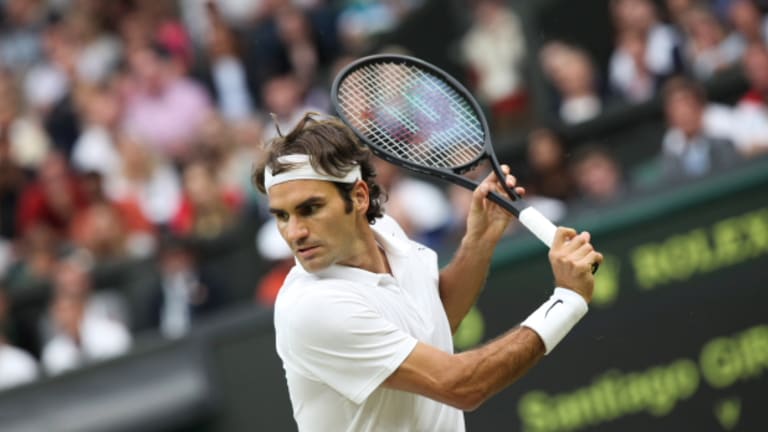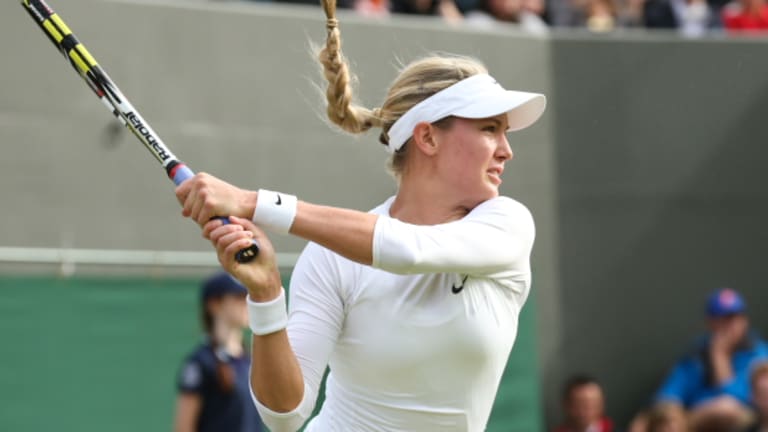WIMBLEDON, ENGLAND—”These girls, when they play me, it’s like they’re on the ATP tour.”
That was the theme of Serena Williams’ press conference after her wild and surprising three-set loss to Alizé Cornet here on Saturday.
“I think everyone in general plays the match of their lives against me,” Serena went on. “So I’m pretty sure that the next match, it won’t be the same. So I just have to always, every time I step on the court, be a hundred times better. If I’m not, then I’m in trouble.”
Serena said she felt like she didn’t play badly. She thought she was better, certainly, than she had been at the French Open. She didn’t know what happened exactly today.
“I thought I was doing pretty decent,” she said. “I think I’m going to have to watch this film and see what I can do better and what went wrong.”
Serena was definitely pretty decent in the first set, which she won 6-1. But as in other matches recently, her serve wasn’t up to its usual standard of intimidating excellence—it wasn’t THAT serve, the one she once praised as “mean.” Serena hit just three aces against Cornet, was broken five times, and couldn’t rely on it to bail her out down the stretch.
Cornet, as Serena said, played well. "Way better from the beginning of the second set,” the Frenchwoman said. But she denied that this was the match of her life.
“On the contrary,” Cornet said, “I cannot say that I played my best tennis today really. In Dubai I did. It was a perfect match.”
Cornet beat Serena in Dubai, and she believes she has always matched up well with her. This would help explain how Cornet could lose to Taylor Townsend, who is ranked 146 places below Serena, at the French Open last month.
“I played against her a lot of times before,” Cornet said of Williams, “and it was always pretty tight matches. I think maybe she doesn’t like so much the way I’m playing. I’m pretty creative on the court, doing some different things.”
Cornet said she decided to “be herself” in this match, which meant mixing in drop shots and letting her creativity flow. Some commentators have suggested in the past that the drop shot could be a good play against the Serena, who will be 33 in September. That was the case today: Cornet yanked Serena up and back, and finished with the same number of winners as her, something you wouldn’t expect on grass.



